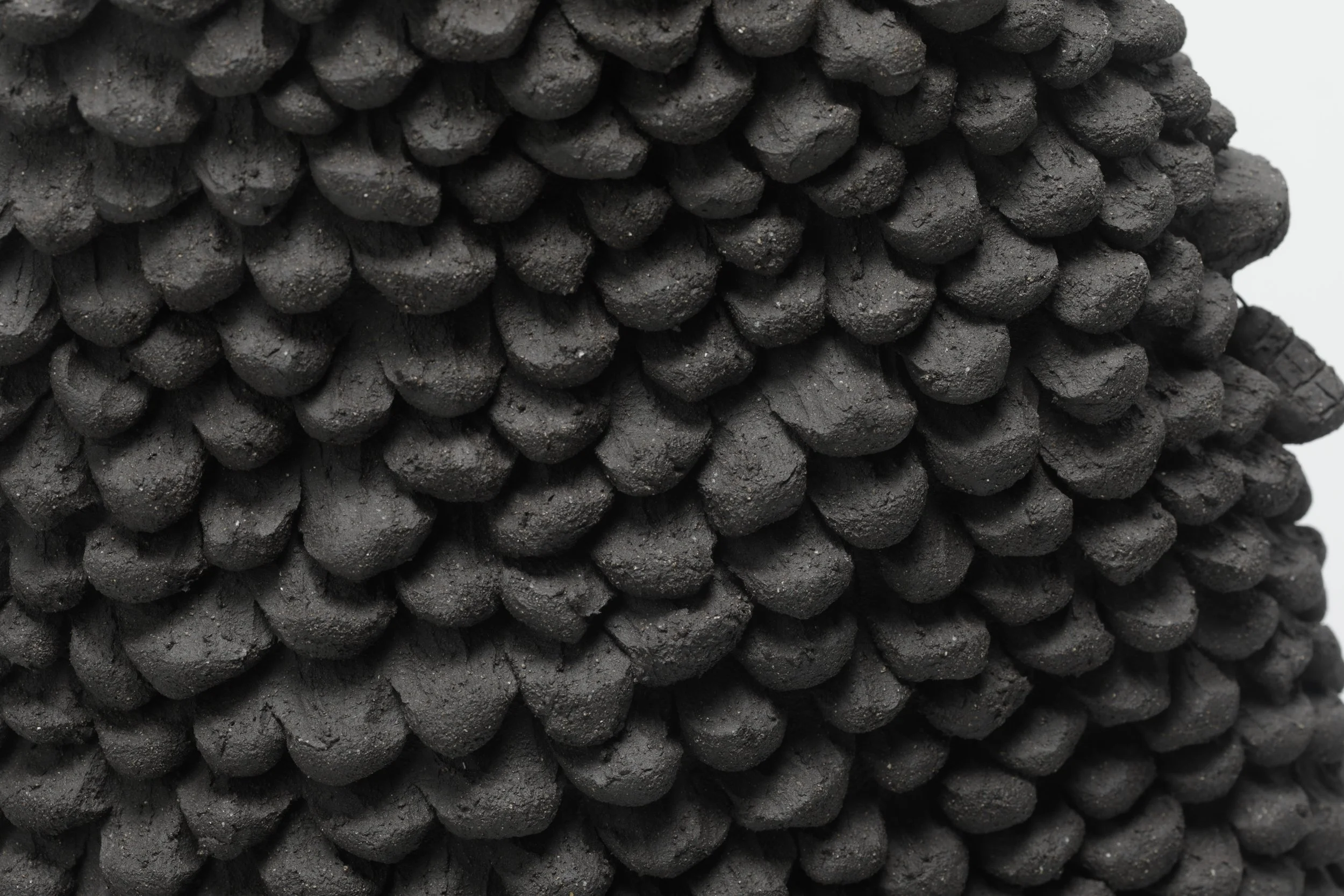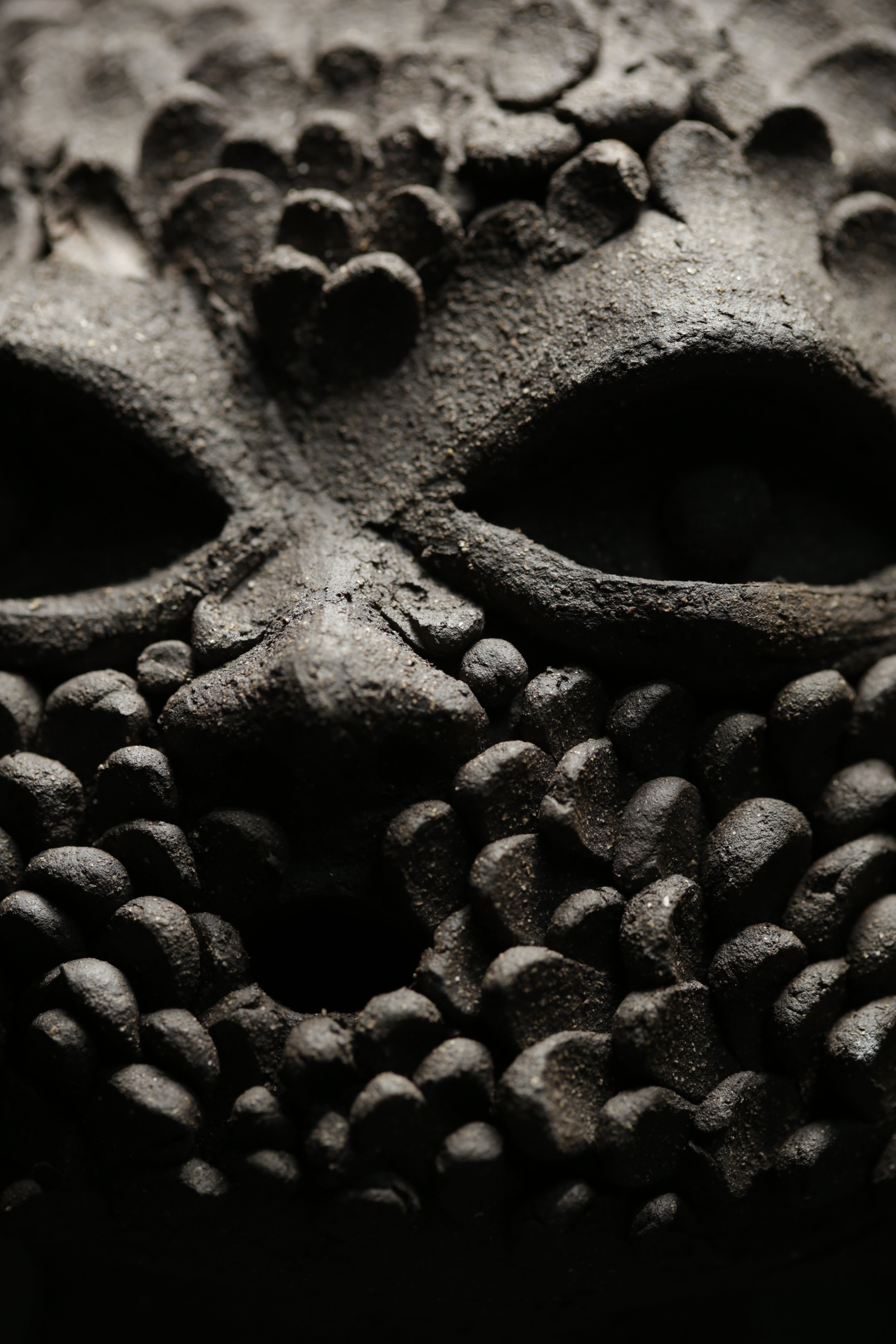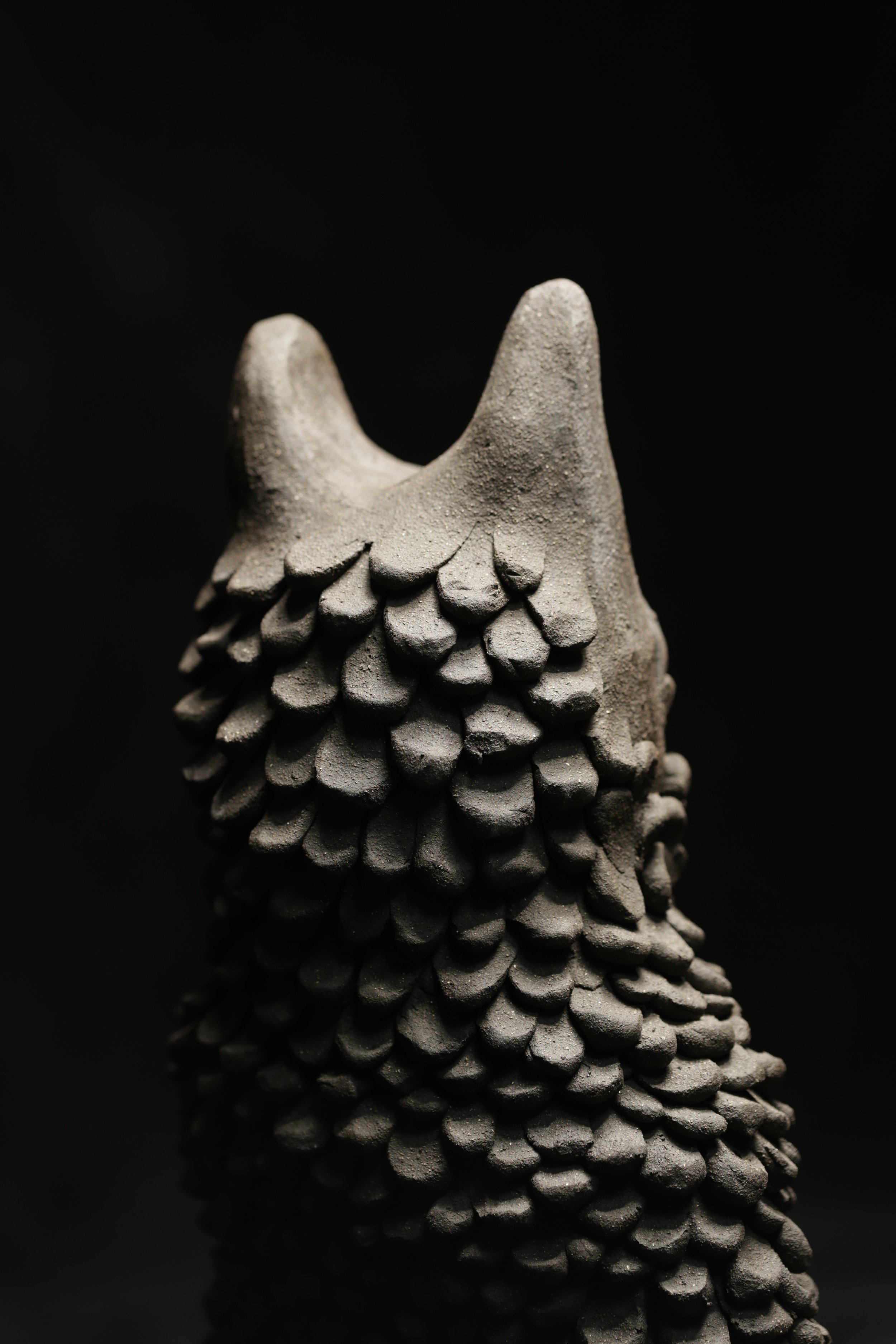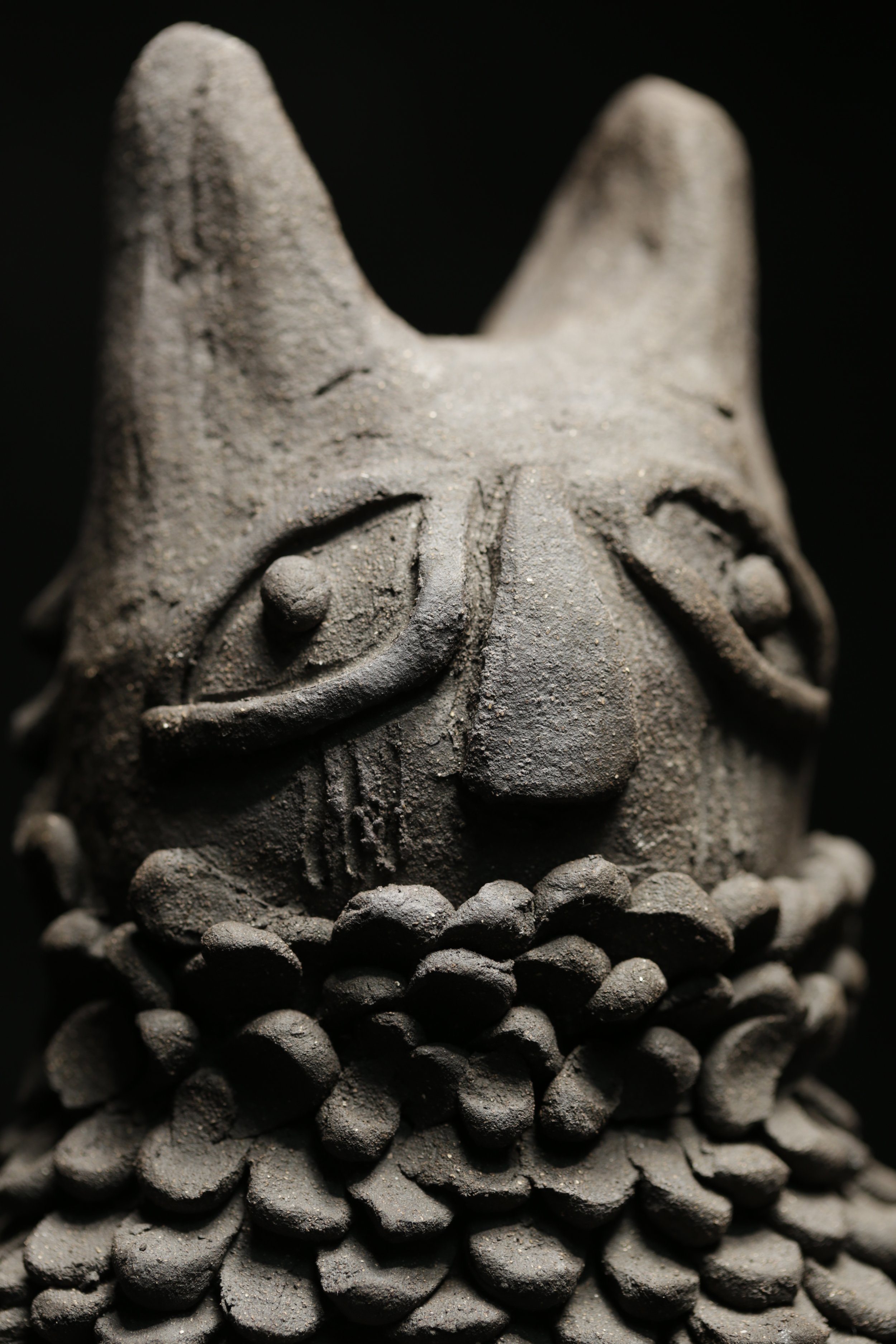
ÉHI: My Spiritual Guardians
-
ÉHI: My Spiritual Guardians -
ÉHI: My Spiritual Guardians:
My work explores fear, memory, and cultural identity, focusing on how childhood experiences shape emotional and spiritual growth. Raised in a devout Christian household, I grappled with religious teachings that instilled both reverence and fear—especially toward traditional African spirituality. This internal conflict, shaped by cultural displacement and evolving beliefs, drives my artistic practice.
Through ceramics and storytelling, I translate these complex emotions into tactile forms, incorporating symbolic textures and imagery that reference African spiritual traditions, religious iconography, and personal memory. Clay, with its connection to the earth and ancestral craft, becomes a vessel for both preservation and transformation. My work is deeply rooted in research and personal history, inviting viewers to reflect on their own inherited narratives, question imposed beliefs, and bridge the past with the present.
My practice also examines the intersection of race, gender, and heritage, with a focus on how cultural identity is shaped and sustained across generations. I draw from African ceramic traditions, particularly the matrilineal knowledge passed down through generations of women. By integrating traditional hand-building techniques like coiling with contemporary tools such as 3D printing, I explore the evolution of heritage while honouring its enduring significance. By combining historical craft with contemporary approaches, I aim to push the boundaries of what ceramics can communicate, honouring ancestral knowledge while addressing contemporary societal issues.











